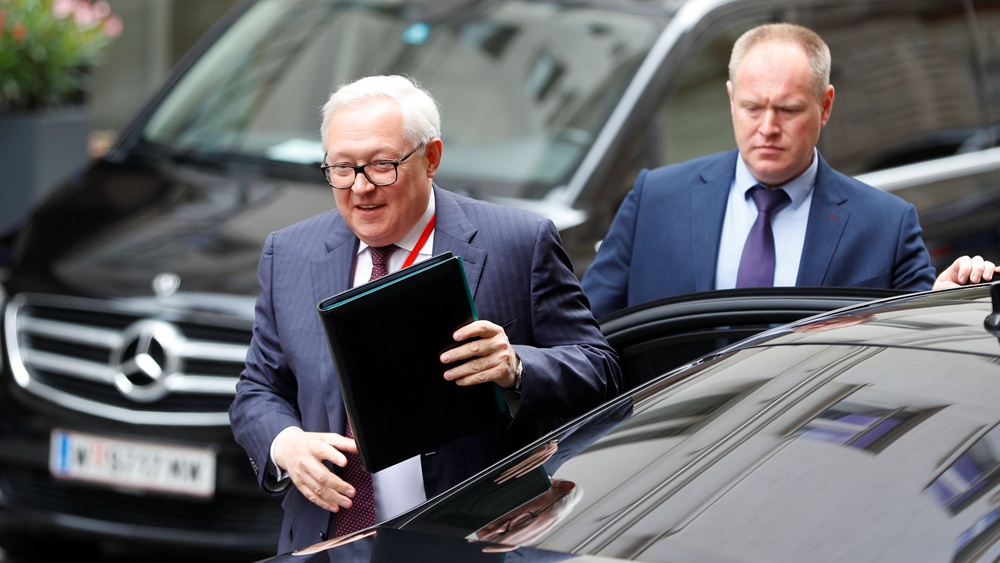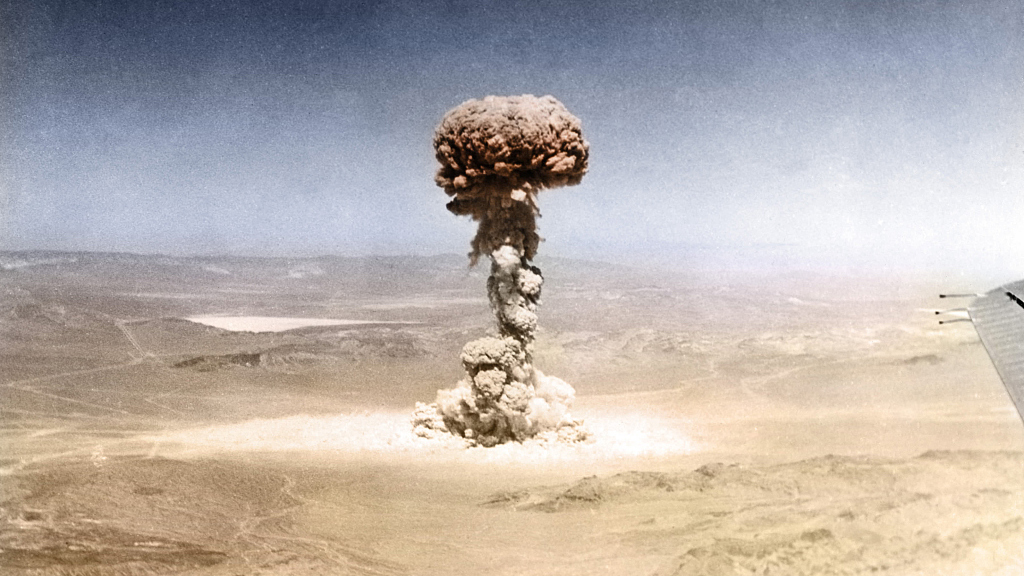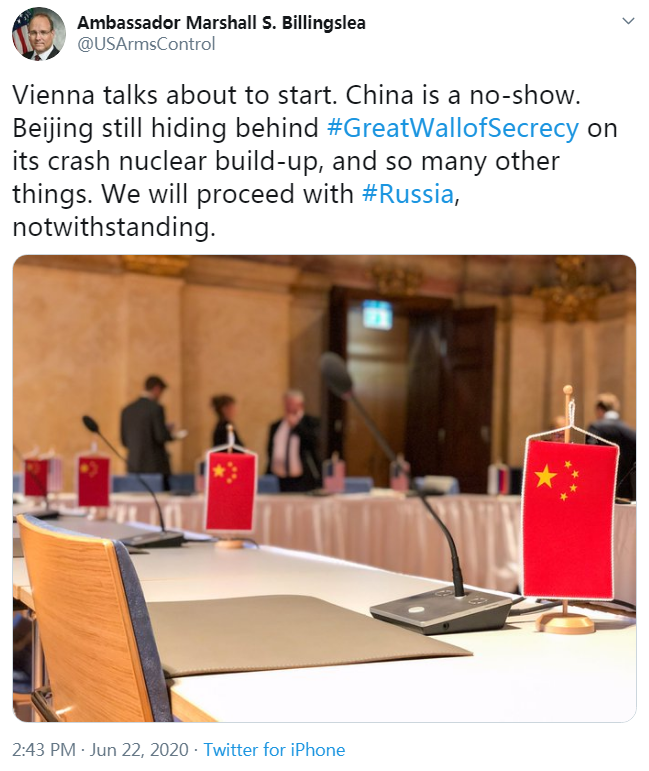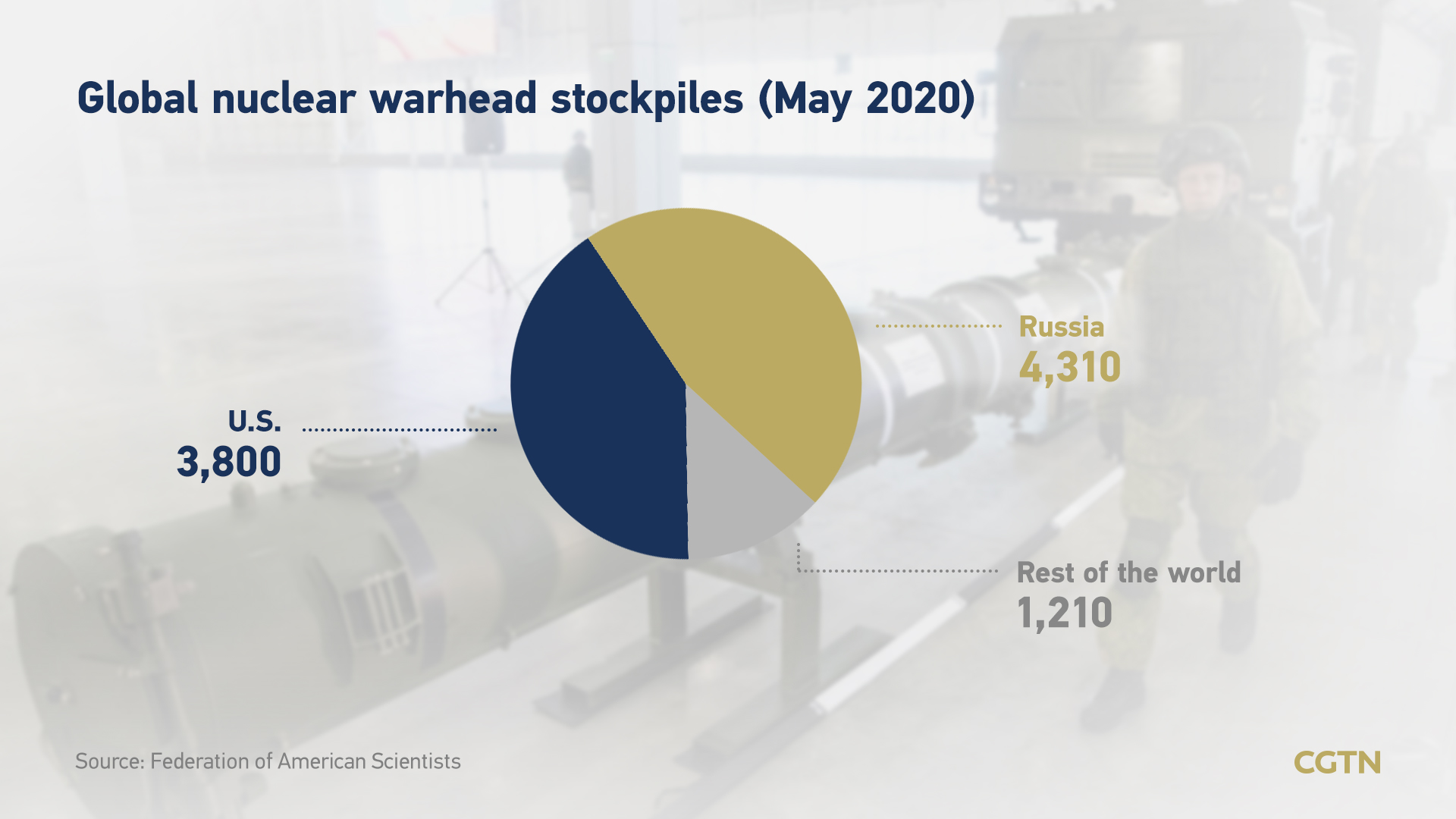
Russian Deputy Foreign Minister Sergei Ryabkov (front) arrives for a meeting with U.S. special envoy Marshall Billingslea in Vienna, Austria, June 22, 2020. /Reuters
Russian Deputy Foreign Minister Sergei Ryabkov (front) arrives for a meeting with U.S. special envoy Marshall Billingslea in Vienna, Austria, June 22, 2020. /Reuters
Russia said on Tuesday it was "unrealistic" for the United States to insist China be involved in nuclear disarmament talks, a day after Moscow and Washington held negotiations on their only remaining major nuclear weapons accord.
"The United States has not moved away from its position of including China. From our side, we have explained in detail why we consider it unrealistic to count on China's participation," Deputy Foreign Minister Sergei Ryabkov, Russia's negotiator in the talks, was quoted as saying by news agency RIA Novosti.
"And we will not use our influence on China as the Americans want," he added.
U.S. President Donald Trump has insisted China should be involved in discussions to extend New START, the treaty that limits U.S. and Russian nuclear warheads.
And the U.S. envoy to the talks, Marshall Billingslea, insisted on Tuesday that China had "an obligation to negotiate in good faith with us and the Russians."
01:03

The talks on extending the treaty – which expires in February 2021 and limits each side to 1,550 deployed nuclear warheads – took place in Vienna on Monday, with Billingslea saying they had been "very positive."
The U.S envoy said another round of talks could take place towards the end of July but admitted it could once again be restricted to Washington and Moscow and didn't rule out an extension of the bilateral accord.
"The Russian Federation did not agree with my request to pressure China to join as a responsible party into these talks, but they also... are not opposed to China joining," Billingslea said.
Shortly before talks began, Billingslea again raised the issue of what he called China's "no-show" by tweeting a picture of an empty negotiating table decked with Chinese flags. China's mission in Vienna responded by ridiculing the tweet as "performance art."

U.S. envoy Marshall Billingslea's tweet on June 22 before the start of his talks with Russian negotiator Sergei Ryabkov on nuclear arms control. /@USArmsControl
U.S. envoy Marshall Billingslea's tweet on June 22 before the start of his talks with Russian negotiator Sergei Ryabkov on nuclear arms control. /@USArmsControl
Chinese Foreign Ministry spokesperson Zhao Lijian noted on Tuesday that the pattern on the Chinese flags placed on the table is wrong. He urged Washington to stop playing such "boring tricks."
Read more:
U.S. 'performance art' in Vienna is new high in 'Act of Buck-passing'
U.S.-Russia arms talks: Start for New START Treaty?
China: No intention to join
China has reiterated many times that it has no intention to join the so-called China-U.S.-Russia trilateral arms control negotiations and this position is "clear and consistent."
"As is known to all, China's nuclear power is not on the same order of magnitude as that of the United States and Russia. It is not yet the right timing for China to participate in nuclear disarmament talks," Hua Chunying, another spokesperson of the Chinese Foreign Ministry, said on June 11, adding that owners of the largest nuclear arsenals have special and primary responsibilities in nuclear disarmament.

The U.S. and Russia have about 91 percent of the world's nuclear warheads, according to the Federation of American Scientists. The U.S. has 3,800 in its stockpile while Russia has 4,310.
Considering the current circumstances, Hua said the U.S. should respond positively to Russia's call to extend the New START Treaty and further drastically reduce its nuclear arms stockpile, creating conditions for other nuclear-weapon states to join in multilateral nuclear disarmament talks.
"Not participating in trilateral talks does not mean China will be absent in the global efforts on nuclear disarmament," Hua said, noting that China has been actively calling on the Conference on Disarmament and the P5 mechanism for substantive steps to reduce risks of nuclear war and uphold global strategic stability.
(With input from AFP)